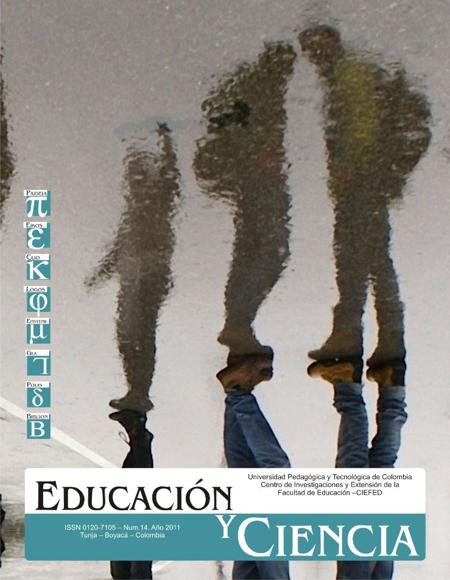El Instituto Pedagógico Industrial de la Universidad Pedagógica de Colombia durante el gobierno Rojas Pinilla (1953-1957)

Resumen
El Instituto Pedagógico Industrial fue un establecimiento adscrito a la
Universidad Pedagógica de Colombia, según el Artículo 3 del Decreto 2655 de 1953 (10 de octubre), decreto del orden nacional de creación de
esta universidad con sede en Tunja. Con base en la consulta de fuentes
primarias y secundarias, el artículo presenta los desarrollos del Instituto
Pedagógico Industrial entre 1953 y 1957, periodo en el cual regentó la
presidencia de Colombia el Teniente General Gustavo Rojas Pinilla. En
1953 ya funcionaba, con 120 alumnos, cuatro grados y tres especialidades técnicas, la Escuela Superior de Artes y Oficios de Tunja, adscrita al Ministerio de Educación Nacional, en 1954 tuvo lugar la graduación de 18 estudiantes en su condición de egresados de una
Escuela Normal Industrial adscrita a la Universidad Pedagógica de Colombia y al Instituto Pedagógico Industrial, con cuatro años de formación académica, en enero de 1955 fue trasladada a Duitama la Escuela Normal Industrial, y finalizando el año tuvo lugar la culminación de la formación de 12 alumnos con cinco años cursados y aprobados. La situación de Boyacá, con el ámbito del proyecto de la Empresa Siderúrgica Nacional de Paz de Río S.A., y la necesidad tanto de docentes para cubrir las necesidades de profesores y dirigentes de las Escuelas Industriales e instituciones similares, como de talento humano para desempeñarse en el ambiente siderúrgico, nuevo para Boyacá, contribuyeron a los desarrollos del Instituto Pedagógico Industrial.
Palabras clave: Educación industrial, Instituto Pedagógico Industrial,
Universidad Pedagógica de Colombia, Escuela Central de Artes y Oficios.
Abstract
The Industrial Pedagogic Institute was an establishment ascribed to the
Colombian Pedagogic University, according the Article 3 of the Decree
2655 of 1953 (10th of Octuber), of national level, which created this
University in Tunja City. Based upon primary and secondary sources, the
article presents the Pedagogic Industrial Institute‘s development between 1953 and 1957, period during which the Colombian Presidency was held by the Lieutenant General, Gustavo Rojas Pinilla. In 1953 with 120 students, four grades and three technical specialties, operated The Superior School of Arts and Trades of Tunja, ascribed to the National Education Ministry. In 1954 18 students ended their studies programs, becoming graduated from a Teachers’s Training School ascribed to the Pedagogic University of Colombia and to the Industrial Pedagogic Institute, with a four years’ academic formation. In January 1955, the Teachers Industrial School was moved to the city of Duitama, the same year in which 12 students ended and approved their formation in a five years course. The new situation for the Boyacá Department, ppeared with the National Steel Mill Enterprise of Paz del Río SA’s project, and the double necessity, of teachers to become the instructors and the leaders to cover the places at the Industrial Schools and similar institutions, also provided the human aptitude to perform in the steel mill environment, and gave their contribution to the Industrial Pedagogic Institute’s development.
Key words: Industrial education, Industrial Pedagogic Institute, Colombian Pedagogic University, Arts and Trades Central School.
Biografía del autor/a
Jorge Arturo Martínez Ávila
Administrativo Profesional
Oficina Educación Virtual